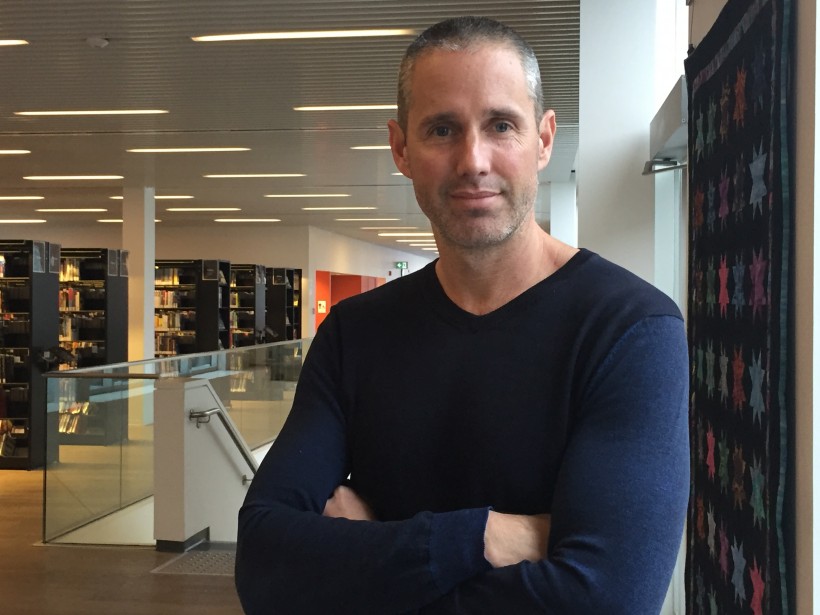Halifax-based Smallfood, one of the stars of the East Coast foodtech scene, is raising a Series A funding round and preparing to open a new plant in Dartmouth that CEO Marc St-Onge expects to generate the company’s first commercial revenue.
He said in an interview the raise follows “extremely successful” aquaculture trials of Smallfood’s algae-based fish feed products, as well as a smaller funding round earlier this year. The exact size of the new facility is yet to be determined, since the company will share a larger building with other users.
The expansion arrives shortly after Smallfood was one of just six companies out of a field of hundreds to be selected as finalists for the international XPRIZE Feed the Next Billion startup competition, placing it in the running for a US$15 million prize pool.
“It’s been a challenging few years — the life of a startup and on top of that the pandemic — but at this stage right now, we’re getting closer to market applications,” said St-Onge. “We’re hitting pretty big technical milestones as well as commercial milestones, so we’re all pretty excited.”
From the perspective of Canadian regulators, Smallfood is actually an aquaculture operation. Founded in 2018, the company is developing food ingredients derived from fermented algae, as well as feed for fish farms. But the fact the business involves cultivating algae means it is technically Canada’s “first and still only single-cell aquaculture company,” he said.
“The process is very similar to growing yeast,” he added. “Basically you need a sugar source, a carbon source and very small amounts of vitamins and minerals. Our particular organism is quite a robust grower, so once it has favourable conditions, it grows extremely fast.
“And the fermentation process happens in vertical tanks similar to an industrial brewery.”
Feeding farmed fish has been a longstanding pain point for the seafood industry, with conventional solutions tending to consume more calories than they ultimately produce in edible fish. Feeds that use low-quality ingredients like soy meal and feathers have also proliferated in recent years, compared to more traditional feed products manufactured from other sea life.
“We have about the same amount of protein with a similar protein quality as fish meal,” said St-Onge. “We have approximately the same amount of lipids, but actually our micro-algae produces around twice as much Omega 3 as conventional fish meal and fish oil (feeds).”
Smallfood’s XPRIZE entry, meanwhile, is a joint project with Toronto’s Terra Bio, dubbed Team ProFillet — the only multi-company team in the finals and the only finalist from North America.
Terra Bio upcycles spent grains from breweries into raw food ingredients like sugars and protein powders. The two businesses are creating an imitation fish product with a realistic texture and higher nutritional density than existing offerings thanks to Smallfood’s algae derivative.
“After the grains have been fully spent in the brewing process, there is still residual protein, and of course the cellulose from the grain is also still a residue of that,” said St-Onge. “So they have a technology that liberates the protein from the spent grain so it can be used as a novel protein source for food production. At the same time … they have a cost-effective technology that converts the cellulose to a sugary solution, and sugar, of course, is the main feedstock for fermentation.
“So this was really conceived of as using the Smallfood technology … to replicate the nutritional profile of the fish, and then we further improve our environmental metrics by upcycling the cellulosic sugar to use in our fermentation.”
The XPRIZE is modelled on the Orteig Prize that marked the advent of transatlantic air travel when Charles Lindbergh won it in 1927. Like its forebear, the XPRIZE attracts industry-leading competitors from around the world in pursuit of some of the most valuable prize pools on offer from a major startup competition. The goal of its Feed the Next Billion iteration is to find new forms of nutrition that can sustainably produce foods for the world's growing population without harming the environment
For a fast-growing, but still modestly sized startup ecosystem, Atlantic Canada has produced a sizeable number of companies that have made strong showings in various generations of the XPRIZE.
Clean concrete startup CarbonCure, which earlier this month closed a gangbusters US$80 million funding raise, was the co-winner of 2021’s NRG COSIA Carbon XPRIZE, taking home $10 million at the time. The company is now chasing a new, US$100 million Carbon Removal XPRIZE that will be decided in 2025. And Halifax-based Planetary Technologies, which is developing a system to use mining waste to counter ocean acidification as part of the same competition, won an interim, US$1 million Milestone Award last year.










